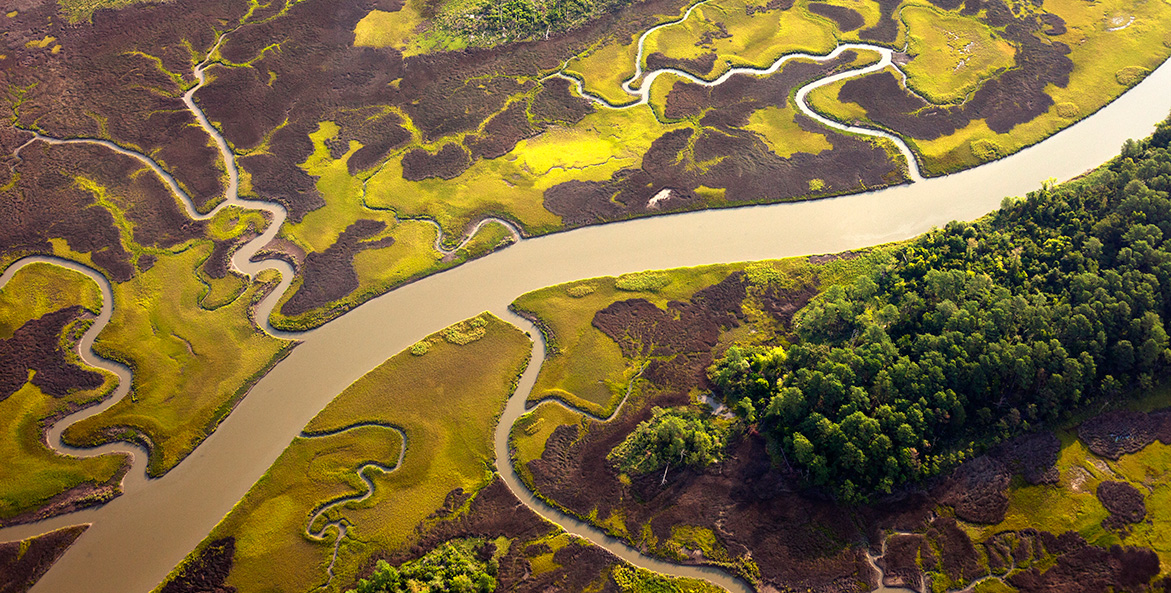Despite the vast scale of the Chesapeake Bay watershed, restoration is often hyperlocal and deeply personal. It happens one person, one tree, one community at a time, all adding up to something much bigger—like the revitalization of 18 acres along the Nansemond River that the Nansemond Indian Nation is leading to help heal and deepen their physical connection to their ancestral land. Or the student-led campaign to name the Eastern hellbender salamander as Pennsylvania’s state amphibian, which celebrates its five-year anniversary this month and is still shaping the paths of the former student leaders who spearheaded it. The effects of pollution and environmental degradation are also felt on a personal level. Climate change, for example, is leading ticks to expand their range, and Lyme disease cases are increasing, including in the Chesapeake Bay region—a problem made worse by the forest loss and fragmentation that also harms waterways. And some communities continue to bear disproportionate burdens of an unhealthy Bay.
That’s why CBF is working alongside community groups and partners to advance equity and environmental justice around the watershed. This month, Carmera Thomas-Wilhite, CBF’s first Vice President of Diversity, Equity, Inclusion, and Justice, spoke with the Bay Journal about her role and how to ensure everyone has a place in the watershed and its restoration. Other big headlines this month include: CBF’s legal action to stop a proposed hydroelectric facility in York County, Pennsylvania, that threatens Cuffs Run and the Susquehanna River; Maryland’s approval of legislation to address industrial sludge; and nearly $1 million in conservation grants that will help farmers in Maryland, Virginia, and West Virginia improve water quality and sequester carbon.
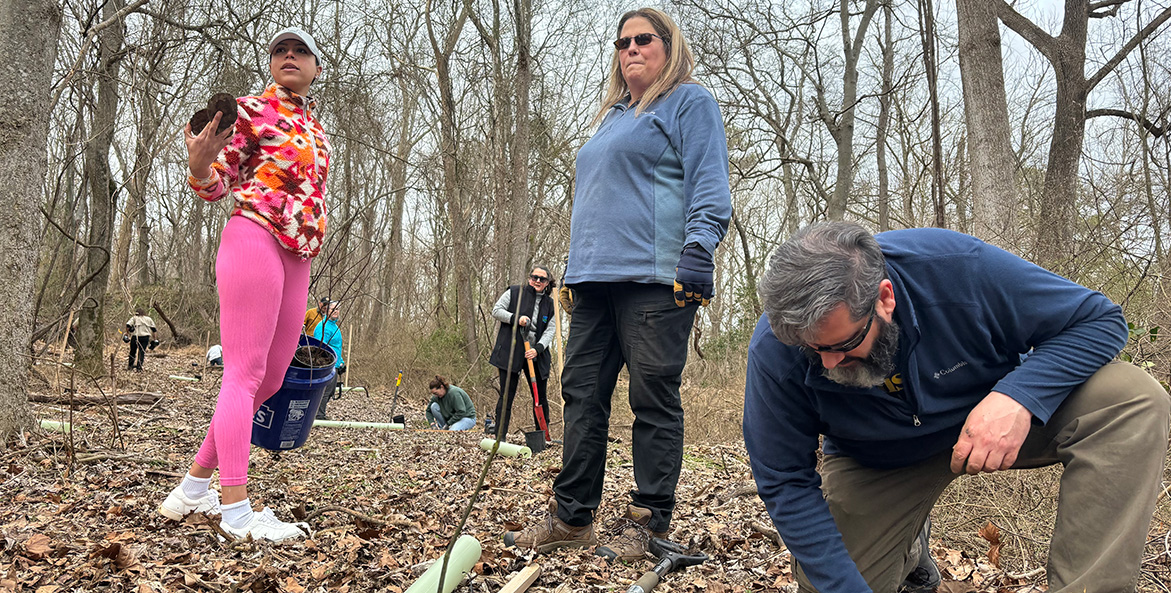
Volunteers plant trees during the Nansemond Indian Nation’s multi-day tree-planting project.
Vanessa Remmers/CBF Staff
River Connection
Cleared of invasive species and industrial debris like railway cars, 18 acres of land along the Nansemond River are closer to telling their own story after a multi-day project to plant hundreds of native trees. The project is part of the Nansemond Indian Nation’s efforts to heal and deepen their physical connection to their ancestral riverfront land.
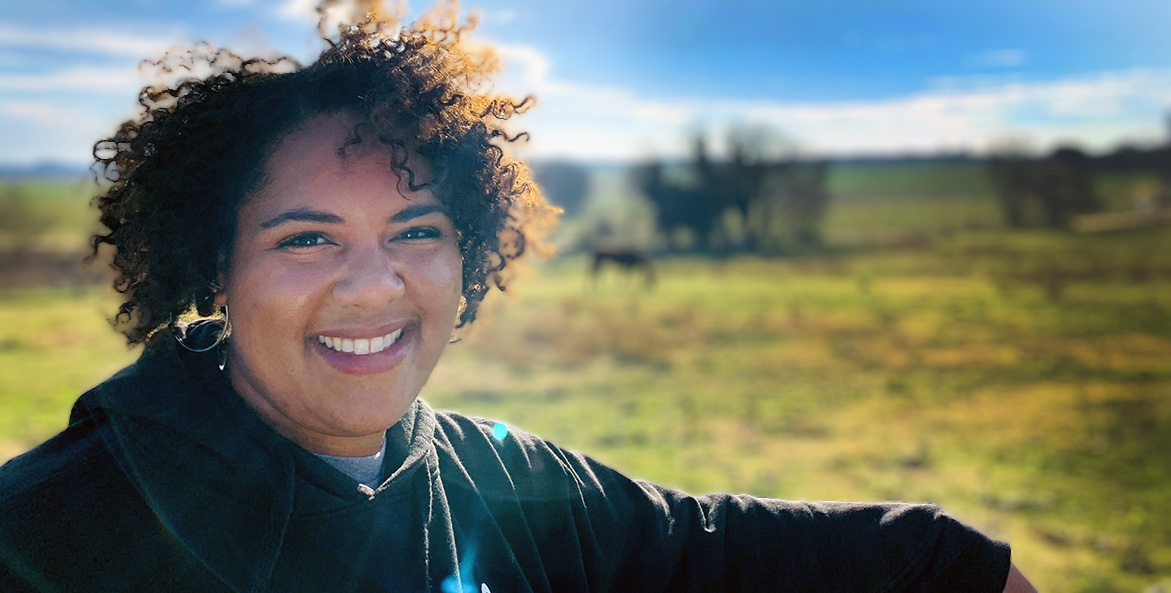
Carmera Thomas-Wilhite works to ensure CBF engages authentically and builds relationships with the diverse communities that make up the watershed.
Barry Wilhite
Advocacy as Diverse as Nature
Carmera Thomas-Wilhite is CBF’s first ever Vice President of Diversity, Equity, Inclusion, and Justice and a leading regional voice on the critical topic. This month she spoke with the Bay Journal about her role, her personal Chesapeake Bay story, and how human wellbeing along with the Bay’s depend on building relationships and trust within communities.
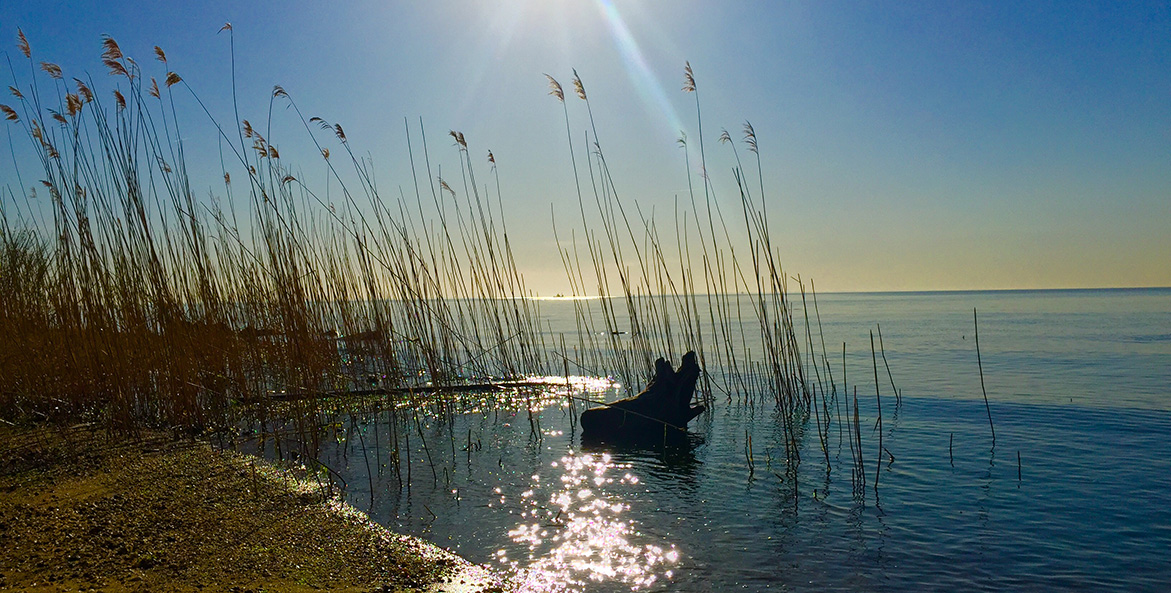
Jessica Srebroski
A Bay for Everyone
Clean water, clean air, and a safe environment are rights we all share, but generations of racism and discriminatory policies have created a society where the burdens of an unhealthy Bay are not borne equally. That’s why CBF is working alongside community groups and partners to advance equity and environmental justice around the watershed. You can help.
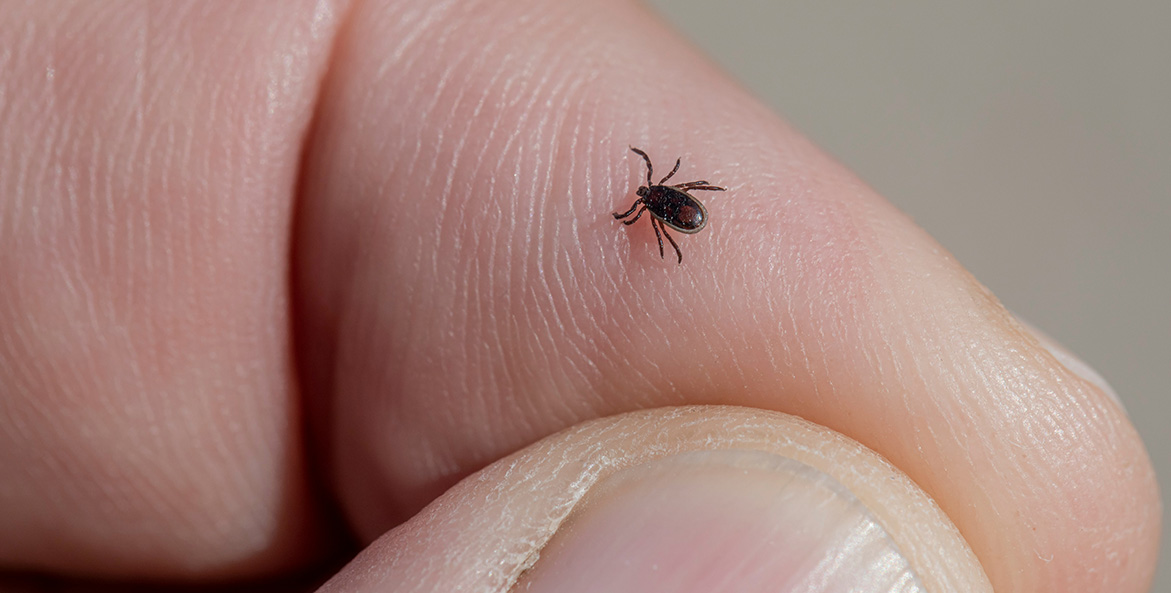
A male deer tick, carrier of Lyme disease. Rising temperatures are a potential factor contributing to the increase of tick-borne diseases in our region.
Erik Karits
Trouble With Ticks
Climate change in the Chesapeake doesn’t stop at sea level rise. It also means an expanding range for ticks—and the public health threats that come with them. But there are things we can do to protect our health and the environment, including how we manage the forests that are critical to our water quality and climate.
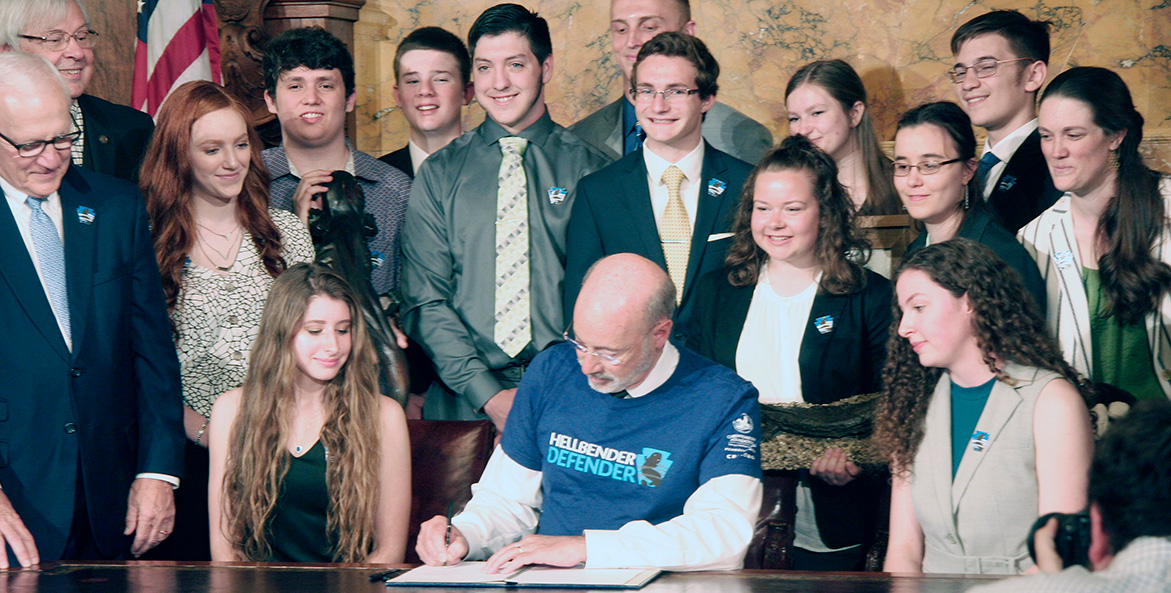
Pennsylvania Governor Tom Wolf signs Senate Bill 9 on April 23, 2019, designating the Eastern hellbender as the Commonwealth’s official state amphibian. Flanking Gov. Wolf is former CBF Student Leadership Council (SLC) President Anna Pauletta, left, and SLC President Emma Stone, right. Five years after the momentous occasion, it’s clear that the hellbender campaign left a lasting impression on students who made it happen.
BJ Small/CBF Staff
Shaped by a Salamander
Five years after their triumphant campaign to crown the Eastern hellbender as Pennsylvania’s state amphibian, former CBF student leaders say the experience left a lasting impression that helped inspire their current pathways. We caught up with six former students who are now pursuing studies and careers in outdoor education, sustainable agriculture, wildlife research, and law.
In the News
- Maryland passes legislation to address influx of industrial sludge: The material has been raising concerns for health and water pollution.
- CBF takes legal action to stop York County, Pennsylvania hydroelectric facility: The proposed facility threatens Cuffs Run and the Susquehanna River and is projected to displace 40 families.
- Virginia oyster shell recycling marks record increase: In 2023, CBF’s volunteer-based shell recycling program increased to 2,500 bushels, equivalent to 50 tons, to support oyster populations.
- Maryland approves Whole Watershed Act: It creates a five-year pilot program targeting five Maryland watersheds for highly collaborative, science-based restoration.
- Nearly $1 million in conservation grants will benefit farmers in Maryland, Virginia, and West Virginia: The funding will help farmers implement conservation practices to improve water quality and sequester carbon.
- Virginia announces $53.9 million for flood prevention and protection projects: It underscores the importance of Virginia’s participation in the Regional Greenhouse Gas Initiative (RGGI), which provides funding for the work.
- Lancaster gets an Early Earth Day Gift: Tree planting at Dart plant stems from Mira Lloyd Dock Award winner who was recognized for conservation and environmental justice work.
- EPA releases tougher auto emission limits: The new standards for passenger cars, SUVs, pickup trucks, and some heavier commercial vehicles will fight climate change, dirty air, and nitrogen pollution in the Bay.
What You Can Do
- A Virginian tradition, CBF’s annual Clean the Bay Day is the perfect opportunity to get outside and save the Bay! Register now to be a part of this special day on Saturday, June 1.
- We need your help selecting the 2024 Viewers’ Choice winner in our Save the Bay Photo Contest! Voting closes next week at 5 p.m. on Tuesday, April 30. Cast your vote now.
- Interested in getting your corporate group or club out on the water? CBF Education is offering a limited number of one-day boat trips this summer. The cost is $1,000. Email [email protected] to learn more.
- The days are getting warmer, and it’s time to update your wardrobe! Shop the CBF Store for fresh spring designs.
If you would like to receive these periodic updates directly to your email, sign up for our Save the Bay newsletter!

